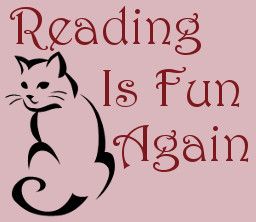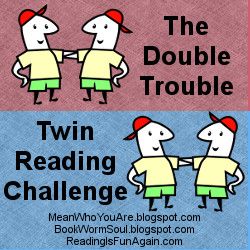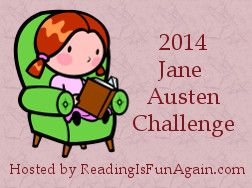It is time for Thoughtful Thursday and the bookish questions that pop up while I am reading. Please share your thoughts on the bookish question of the week. I am curious to hear what you have to say! There are no wrong answers. Alright, on to the question!
How do you feel about unreliable narrators?
According to Wikipedia:
"An unreliable narrator is a narrator, whether in literature, film, or theatre, whose credibility has been seriously compromised. The term was coined in 1961 by Wayne C. Booth in The Rhetoric of Fiction. The narrative mode can be developed for several reasons, sometimes to deceive the reader or audience. Most often unreliable narrators are first-person narrators, but sometimes third-person narrators can also be unreliable.
The nature of the narrator is sometimes immediately clear. For instance, a story may open with the narrator making a plainly false or delusional claim or admitting to being severely mentally ill, or the story itself may have a frame in which the narrator appears as a character, with clues to the character's unreliability. A more dramatic use of the device delays the revelation until near the story's end. This twist ending forces readers to reconsider their point of view and experience of the story. In some cases the narrator's unreliability is never fully revealed but only hinted at, leaving readers to wonder how much the narrator should be trusted and how the story should be interpreted.
An exception is an event that did not or could not happen, told within the fictionalized historical novels, speculative fiction, or clearly delineated dream sequences. Narrators describing them are not considered unreliable."
I had been planning to talk about unreliable narrators for today's post, because I had been thinking about a book that I read a few months ago that had an unreliable narrator. I had wanted to talk about how people feel about narrators lying to them and purposely leaving out information. This is still something that I want to discuss, but now I also want to discuss when the narrators are leaving out information but not for a deceitful reason, because I just finished Ancillary Justice (and this is an issue in the book).
Okay, first let's talk about narrators who are purposely leaving out information. I can think of two books off the top of my head that had narrators that lied to me, the reader, on purpose. One wanted to cover up a crime and another wanted me to believe that he was more competent at his job than he was (I am being vague on purpose just in case you end up reading these books in the future). Both times, I felt a bit giddy when the narrator was outed as unreliable. It was unexpected in both instances, and I really enjoyed the twist. Granted, if these narrators were my real friends, I would be really upset that they lied to me and not giddy. Although I enjoyed having an unreliable narrator in both instances, I don't think I would have felt so enamored if the authors used this "trick" a second time. I remember when I sat down to read the second book in a series that had an unreliable narrator in the first book. I was on edge the entire time. I kept waiting for it to happen again. Toward the end of the book there was a situation in which a narrator could have been shown to be unreliable. I remember being very upset and putting the book away. I didn't read the book for about two weeks. I was preemptively angry with the author for putting me in this situation. I desperately did not want the narrator to be a liar about this particular situation. Finally, the book was going to be due at the library soon, so I bit the bullet and decided to finish the book. Luckily, the situation worked itself out and everything was okay. The narrator was reliable. Thank goodness.
Honestly, as much as a I loved the unreliable narrator in these two books, I think I would be furious if the author used this narrator on a regular basis. The old phrase, "fool me once, shame on you, fool me twice, shame on me" keeps popping up in my head. I want to be fooled every once in a while, but I don't want to feel like a fool.
Alright, now let's talk about narrators who are not purposely trying to sneak one past you. In Ancillary Justice, Breq is a starship in a human body and doesn't typically use a gendered language. She refers to both men and women as women. Breq isn't trying to hide anything from the reader; however, the reader is still left in the dark about this. When I was reading this book, I thought it was rather clever that we were never sure of people's gender and thought it was a neat mechanic. Later though, I started to realize that I take for granted that all of my narrators, unless they are specifically outed as unreliable, are reliable. Now I am starting to wonder, if that trust is misplaced. Do most authors just write their narrators as truthful or is this a crazy assumption that I picked up at some point?
Your turn! What do you think about unreliable narrators? Hate them? Love them? Find them a tired old mechanic? What do you think about unreliable narrators like Breq who are not trying to be unreliable? Please do NOT mention the name of a book/author, if the unreliable narrator is a big part of the plot twist.















12 comments:
This is a very interesting post. Honestly it is not something I have ever really thought about or considered. Thank you for this interesting post, it definitely got me thinking.
Chanzie @ Mean Who You Are.
Great post! I don't mind an unreliable narrator if it serves the story and is used sparingly, like you said. I wouldn't want to be hit over the head with it all the time. If it's revealed at the end that the narrator was unreliable, I might love the twist but at the same time wonder how much of the info I was given was unreliable. :) Which could change my perception of the book.
The Game of Thrones books came to mind when I read your post. Some of the POV's in that series could be considered unreliable, since they don't always know all the angles and later see a different side. Maybe it's not exactly the same thing, after all the POV may not be lying just giving us their own limited perspective, but it's close at times.
Love them, though they are hard to pull off. When done right though they are a great way to make you think through the text, and provide endless discussions with friends.
Take the First Law trilogy by Abercombie; I have seen several discusions where Ardie is called all kinds of nasty things and I am compelled to point out that we only really see her through the perspective a spoiled, vial human. Is it her? Or is it just how Jezel perseives her? We are so used to the narrators voice being that of a hero, when it is not it skews all perspective, even to the point where we may be rooting for the wrong character. (The same can be said of Tyrion from ASOIAF, a fan favorite for his wit and strength, his rabid fans often overlook the things he does wrong).
I guess whether it works or not depends on what people are looking for from each particular book. If the goal is only to be taken for a ride and shown the sites, it will fail badly. But as a kick of for discussion it adds a whole new element. (All that said, if it is only done at the end of the book with little foreshadowing then I see it more as a cheap trick than a nice narrative, and would also feel betrayed).
I think a lot depends on the genre or subject matter. An unreliable narrator can create a sense of unease which is perfectly eerie for example in a mystery. Or when you really aren't sure if the narrator is crazy or the sh@t is really going down as he tells it. In those incidences I adore an unreliable narrator. Now in a romance he is a smuck. LOL As for the starship example or ones where the author purposely leaves things out to evoke a powerful message I am ok with those. To be honest I have never really looked for the author to as you say "trick me again",as I felt the unreliable narrator worked in the previous tale. Writing an unreliable character can also happen when there are multiple povs and one isn't aware of the entire story and as bits and pieces are revealed we find they got it all wrong. So some end up being intentional and others are happenstance.
Wonderful topic. I love an unreliable narrator if the genre allows for it.
I actually really think it depends on the book. Sometimes it can really upset me because I trusted that narrator and I feel betrayed. I think most of the time they make for a really incredible plot twist though!!!
I think that for me, it depends on just how unreliable they are! I don't enjoy it if very important information is kept from me on purpose, but I think that we are all unreliable narrators. Even when we're just telling our family how our day has been, we withhold information, add some stuff that might be funny, or embellish other things...
I really do enjoy both 1st and 3rd person narrators that might just conveniently forget to let us know about something, though - apart from if some information would make the plot move forward more smoothly.
Great post :)
Lexxie @ (un)Conventional Bookviews
I guess I just have been reading a lot of books with unreliable narrators in them recently! :)
That is a good point about the Game of Thrones books! It is interesting to see how the children POV characters and the adult POV characters navigate King's Landing in the first book.
It is so true that as readers we usually jump on the bandwagon that our POV character is right. It would be interesting to read a duology of the same story but one book is told from the "hero's" POV and the other is told from the "villain's" POV. It would be particularly interesting if the story is told in a morally ambiguous way, a la GRR Martin, so the reader is left to decide who was in the right and who was in the wrong.
I agree with you. I do like an unreliable narrator in a mystery/thriller type book. I don't think I would like it in a romance though. In a romance, I need my characters to be honest with their feelings, an unreliable narrator is usually focused on hiding those.
In the series that I read, I really liked the unreliable narrator twist in the first book. However, when I thought there was going to be another unreliable narrator in the second book, I became furious because I wanted to trust that narrator! Luckily, the narrator was reliable. I also feel betrayed when a narrator lies to me. I imagine that the character and I are going on a journey together.
So true. We are all unreliable. Imagine if we told stories the way they actually happened all the time? Life would be a very dull place indeed. ;)
Leave a Comment